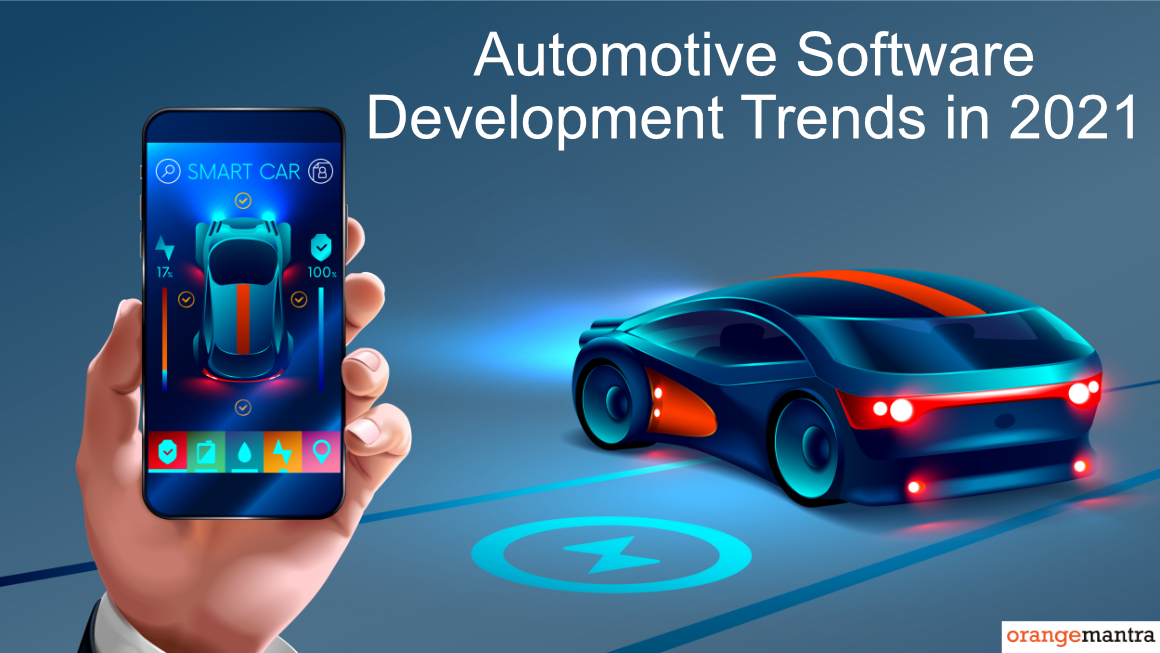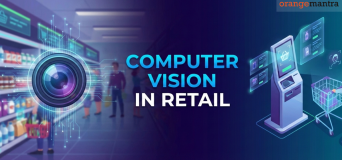
Here’s what you will learn:
COVID-19 has perhaps been the most devastating blow the automotive industry has seen ever. With streets emptying and factories shutting down, most carmakers had to deal with disruptions of a scale that nobody could have seen coming. Although it’s not just a story of the auto industry alone, it was more damaging to the industry in many crucial ways. But over a year into the crisis, the automakers are now emerging more tech-equipped than Before Times. And automotive software development has critical roles in all of this.
From powering up factories with automation to enhancing vehicles’ safety and fuel efficiency, software technologies are everywhere. Besides, as companies like Tesla foster an electric car boom, the role of automotive IT services will only evolve further. In this blog post, we will discuss a glamorous array of trends that are redefining the global automobile industry. Read on to be part of the information-loaded discussion.
Table of Contents
Software-Driven Trends Reshaping the Auto Industry
Elon Musk’s Tesla cars continue to make headlines around the world, connectivity and efficiency have emerged as top priorities among automobile consumers. Keeping these trends in mind, carmakers are now scaling up tech adoption to race ahead in the competition. Here are the top trends.
The Electric Future is Here
If you dwell on the internet universe, you are aware of what Tesla means to the auto industry. Its game-changing cars set in motion a new buzz around the electric car. But Tesla is not an unrivaled player anymore. Automotive giants like Ford and Toyota have laid out extensive plans. Toyota, for example, said it will release 5 new electric car models by 2025.
Consumers, too, embracing electric cars more enthusiastically – especially in western markets. And it has prompted a surge in demands for automotive software engineering focused on electric vehicles. Industry analysts believe these trends will intensify significantly once markets fully open after the pandemic.
Connected Cars are More Popular
A growing number of car owners and prospective buyers are looking for more seamless vehicle connectivity. With an unprecedented evolution in automotive IT services, auto companies are offering fascinating connectivity features. With connectivity comes convenience and security. Owners can easily track and monitor their vehicles. Besides, the availability of a vast array of data allows customers to have deeper insights into their vehicle’s performance. For commercial fleet owners, fleet management and real-time info make their business more secure.
AI & Predictive Maintenance go Mainstream
Artificial intelligence and machine learning are making significant inroads in most industries. Automotive is no exception. Predictive maintenance, a technology that relies on ML, and predictive analytics have seen a rapid surge in adoption. Using predictive maintenance, car owners can avoid devastating breakdowns, saving substantial maintenance costs. And that’s not all. Automakers, too, use predictive maintenance on a large scale. Manufacturing factories equipped with predictive maintenance can dramatically reduce the risks of a machinery failure.
Big Data and Advanced Analytics
The automobile industry’s use of analytics is not limited to predictive maintenance though. Big data and analytics play an increasingly crucial role in managing everything- from assembly lines to customer relationships. And it’s not just carmakers. A growing number of vehicle owners, too, are using automotive connectivity solutions powered by big data and analytics.
Businesses that cater to the automotive industry are also heavily relying on big data to deliver better services. For example, the American-based fintech startup Procon Analytics relies on big data to enable lenders to instantly assess customers. Many other automobile industry-related enterprises are making their operations more efficient and profitable using big data and analytics. Using automotive IT services, manufacturers are adopting a risk-free approach.
Digitized Automotive Retail
Like all other sectors, the behavior of automotive consumers changed tremendously during the pandemic. Online car search queries increased substantially. According to an analysis by McKinsey & Company, car search queries were “highly correlated with car sales” early in the coronavirus outbreak. Besides, car owners showed a growing interest in at-home services. With digital showrooms popping up, customers started to avoid dealership visits and got cars delivered to home instead.
Experts say the automotive industry is undergoing an omnichannel retail transformation. Custom eCommerce solutions are enabling automobile dealers and carmakers alike to digitize seamlessly. Businesses can use hundreds of touchpoints that cover websites, mobile apps, CRM systems, and social media channels, among others.
Wrapping up
Markets in Europe and the U.S. are already reopening after a devastating spell of the pandemic. And the auto industry is gearing up for a technologically transformed market. Trends like automation and digital dealerships are likely to be more dominant in the post-pandemic automotive market. That means the demand for automotive software engineering will remain high.
At OrangeMantra, we rely on years-long software development experience to build deeply customized solutions. Whether you’re an OEM exec or an automobile dealership owner, we have the answers to your tech queries. Get in touch to discuss your next-gen digitization strategy.
Frequently Asked Questions
1. How do connected cars work?
Connected cars are equipped with the Internet (often via IoT). This allows the car to share internet access with other devices both inside as well as outside the vehicle. Connected vehicles have an array of advantages over traditional cars. These vehicles are smarter, safer, and provides real-time data.
2. What is meant by big data analytics?
Big data analytics is the use of advanced analytic techniques against large, diverse data sets that include structured, semi-structured, and unstructured data, from different sources.
3. What is IoT in the automotive industry?
IoT in the automotive industry enables systems to create new applications and solutions which can make vehicles smarter. IoT also makes vehicles safer, more efficient, and easier to drive and maintain.




